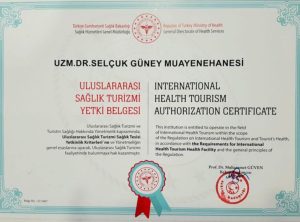Author: Dr. Selcuk Guney
The Difference Between Quality and Quantity in ENT Surgeries
When deviation is accompanied by sinus dysfunction, it is crucial to perform a thorough examination and utilize the necessary imaging techniques to ensure an accurate diagnosis. If just decided to make a deviation surgery without considering the sinus healt is not a correct procedure. Many deviation problems cause sinus osteomeatal disorders in time. For instance, in cases where a nose is not functioning properly, a septoplasty (deviation surgery) alone may result in up to a 60% improvement. However, if sinus dysfunction is not evaluated beforehand, even a successful surgery may not fully resolve nasal obstruction, leaving a 40% issue unresolved. For patients without access to these resources or those who contact us remotely requesting prices for deviation surgery, it is essential to be equipped for potential endoscopic intervention during the procedure. If pathology affecting sinus function is identified during surgery, it is not enough to perform only a septoplasty. Both surgeries should be completed together to achieve 100% success.
The same principle applies in ear microsurgery. For patients with a perforated eardrum, if the mastoid bone behind the ear is infected, simply repairing the eardrum will not solve the problem—it will only suppress the symptoms temporarily. Without cleaning the residual infection in the mastoid cavity, this type of surgery has no long-term benefit, and the issue will eventually recur, potentially leading to complications.
Another topic concerning ENT is tonsil surgeries. If the tonsils and adenoids are not completely removed, the disease will not be cured and may worsen. Tonsils have capsules, and if these capsules are not carefully separated from the tissue without tearing, the diseased lymphatic tissue will continue to cause problems. Similarly, with adenoid (nasal tonsil) tissue, if even small hidden parts are left behind, they can continue to impair breathing function and harbor infections.
One of the most critical dilemmas in ENT is the treatment of nasal turbinates (concha). The mistake of cutting or burning the turbinates should be avoided, as the mucosa covering them is healthy, living tissue. Once conditions like sinusitis, which impair their function, are addressed, it is essential that the turbinates resume their normal function. Therefore, during nasal surgeries, the turbinates and their mucosa should be fully preserved.

